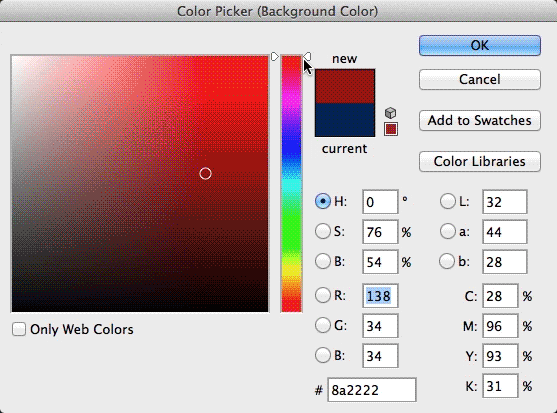CSS Colors
There are a few CSS properties that take a color as a value: background-color, color & text-shadow (changes the font color), border-color & others (see this Applying Color page from the Mozilla Developpers CSS reference).
There are a number of different ways to describe colors in computers & CSS accepts most of them.
Types of Values

Color Names
There are 147 color names like "green", "tomato", & "whitesmoke" which can be used as values. Using color names isn't very common.
Hex Codes
This is likely the most common used method. It comes in the form #rrggbb where rr (red), gg (green) and bb (blue) are hexadecimal values between 00 and ff (same as decimal 0-255). E.g.: #FF0000 is red, #00FF00 is green && #0000FF is blue.
RGB Values
Similar to hex in that it describes a color based on how much red, green & blue there is, except that it takes decimal values from 0 - 255 for each & is written like this: color: rgb(255,0,0); is red, color: rgb(0,255,0); is green & color: rgb(0,0,255); is blue.
HSL Values
hsl stands for hue (degrees from 0 - 360 specifying a spot on the color wheel, 0 being red (the top of the wheel), saturation (the amount of gray in a color (from 0 -100%) & lightness (the amount of white or black (0 - 100%, 50% being normal).
color: hsl(0,100%,50%); is red, color: hsl(120,100%,50%); is green & color: hsl(240,100%,50%); is blue.
opacity / alpha
CSS3 introduced opacity (transparency) which is described via a float value between 0.0 & 1.0
There are a few ways to specify it: either with the opacity: 0.5; property or by adding an 'a' (alpha) to either rgb or hsl like this: color: rgba( 255, 0, 0, 0.5 ); or color: hsla( 0, 100%, 50%, 0.5 ); resulting in semi-transparent red.

